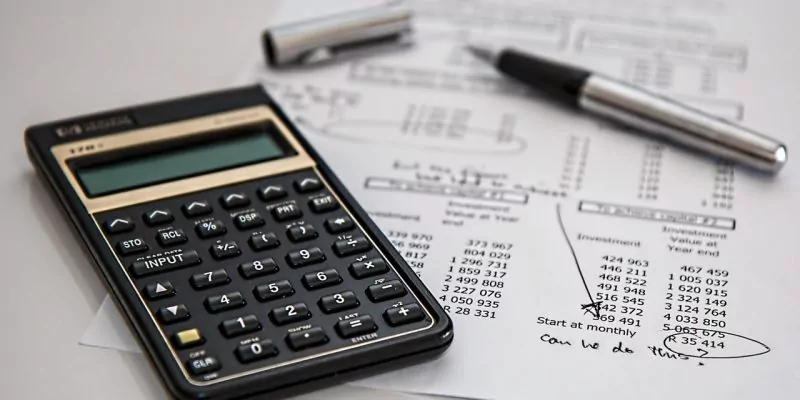Becoming a CPA can be an essential milestone in your career path. As a CPA, you gain access to a wide range of leadership roles, exciting jobs, and incredible industries. You’ll work alongside forensic experts, chief financial officers, IT managers, internal auditors, and CEOs or CFOs.
Employers understand that CPAs have met strict requirements to become certified, but qualified applicants need much more than that to separate themselves from other candidates.

What qualifications do you need to become a CPA?
Besides the citizenship, social security, and age requirements to take the CPA exam, aspiring CPAs also have to earn the necessary degrees and on-the-job experience to become eligible.
Step 1: Earn a Bachelor's Degree in Accounting
Students who want to become CPAs must first get a 4-year Bachelor of Accounting degree. The accounting degree will cover topics and skills they’ll need to become successful in their career. In the typical Undergraduate program, accounting majors will learn the following:
- Business Communication
- Key Computer Concepts
- Strategic Financial Analysis
- Microeconomics
- Macroeconomics
- Business Law
- Managerial Accounting
- Principles of Marketing
All Undergraduate curriculums will have to cover topics like accounting basics, auditing, accounting theory, information systems, forensics, and several other bookkeeping skills.
Step 2: On-the-job experience
While new graduates can walk from one school into another, getting on-the-job experience before you go for your CPA license is crucial. The real-world accounting experience you’ll receive from working at an entry-level accounting job will be invaluable to your career.
Not only that, but you’ll be able to learn skills that aren’t taught in the classroom. People skills are more necessary than budding accountants realize, especially when working with private corporations that staff front-facing advisors. Accountants don’t just crunch numbers all day.
By working at an accounting firm, you get the option to shadow or watch other professionals perform day-to-day tasks. This helps you research your career trajectory. Perhaps you don’t need a CPA license. Maybe you need a master’s degree for the position you want.
Step 3 (Optional): Get a Master’s Degree
One of the requirements to become a CPA is to complete 150 college semester hours, which is 30 more than a typical bachelor’s degree. While you could use those extra hours to get a double major (for example, in business or marketing) or a minor, it’s better to get a master’s degree.
As a Master of Accounting, you gain advanced business and financial knowledge that you’ll need for senior positions. There are several advanced programs that cater to accounting professionals who want to take the CPA exam, so look for schools that offer this option.
Step 4: Pass the CPA exam
Whether you went the on-the-job experience route or you decided to get your license out of school, know that you won’t need anything else but a college degree to take the exam.
To become a CPA, you must pass a national exam and fulfill the licensing requirements in your state. Applicants must pass the uniform CPA exam administered by the American Institute of Certified Public Accountants (AICPA). The test includes multiple-choice and short answers.
This 4-part exam can be taken separately, but you must complete each section of the test within 18 months. You also need to complete 150 college semester hours, which you can either use to get a master’s degree or another major. Once you pass the test, you become certified.
To stay certified, you must renew your CPA license according to your state’s regulations.
What skills do you need to become a CPA?
Anyone can be a good accountant, but not everyone can become a great CPA. You will need to have the following skills to pass your exam, excel in your field, and successfully climb the corporate ladder.
Up-to-date tax knowledge
No tax system stays stagnant year after year. American CPAs know that the IRS will change things up constantly, so they have to keep on top of current tax news. As a CPA, it’s your responsibility to take continuing education courses in federal and state tax laws.
Presentation prowess
Most people don’t like to do their taxes, so they’ll leave tax compliance to the professionals. A CPA must know how to present tax information in a clear and compelling manner. You should know how to speak about boring topics in a persuading, relatable way to attract customers.
Good business sense
As you move up the corporate ladder, you’ll have to compile company-wide reports from a big-picture perspective. You’ll need good business sense if you want to work with multiple departments, but you’ll require it once you’re applying for CFO or head of accounting positions.
Technical computer skills
Bookkeeping is rarely done manually these days. CPAs will need to master their company’s computer systems and software if they want an executive position. Quickbooks and Excel skills are a must, but you’re also required to work with enterprise resource planning systems.
Management and leadership
CPAs are expected to run departments and train other accountants. Even if you aren’t currently a CPA, you can take charge by requesting assignments that put you in the leadership position. You can also take courses on how to develop your leadership and management skills.
High emotional intelligence
You’d be surprised at how many people you’ll interact with over the length of your career. You’ll need high emotional intelligence and empathy to work in a modern workplace, even if you never interact with another customer. Employers value candidates who can relate to others.
Further audit training
Working in internal audit is a rewarding career, and most undergraduate, or even master's programs, won’t teach you enough about auditing. It seems strange that you’ll need even more training after getting certified, but you should never stop learning if you plan to stay a CPA.
Other skills you’ll need
To become a CPA, you’ll need to develop a robust set of administrative and technical skills, which include but aren’t limited to math skills, communication, and interpersonal skills, analytical skills, organization, critical thinking, adaptability, time management, and team collaboration.


